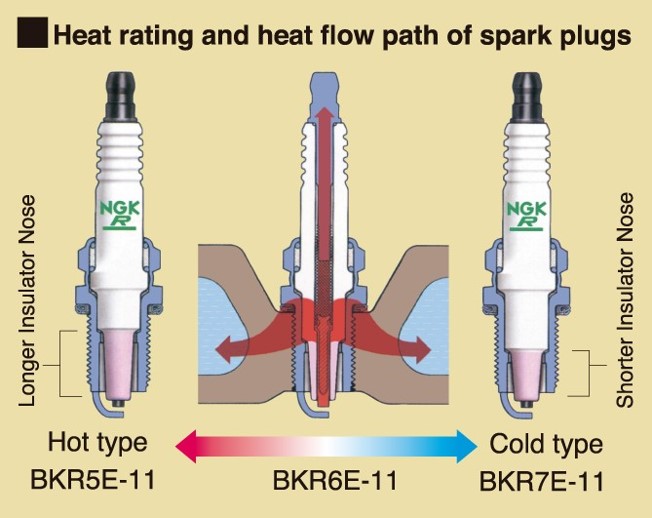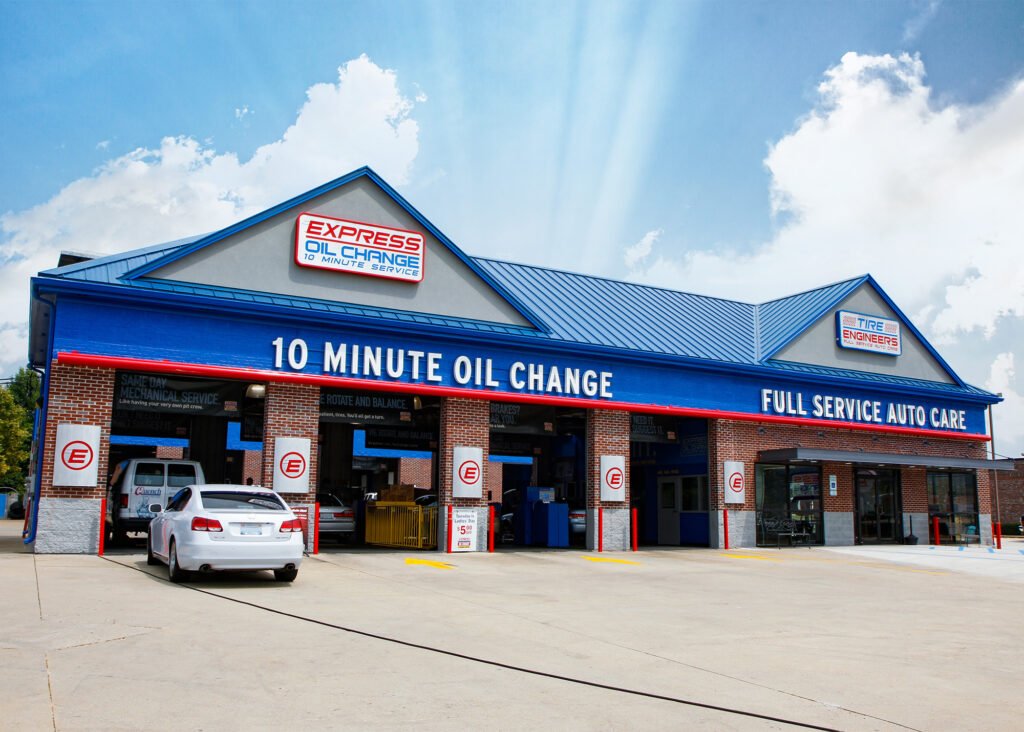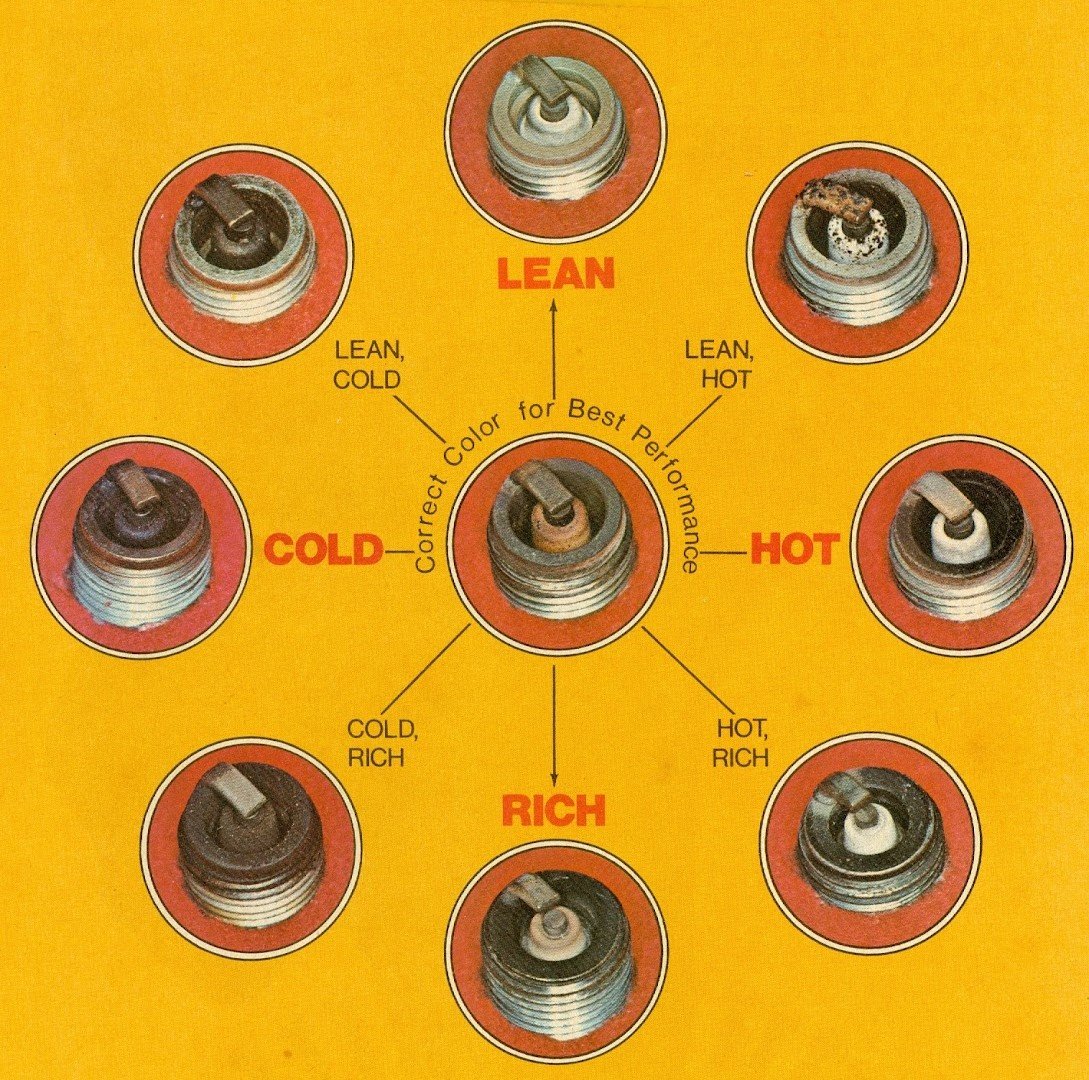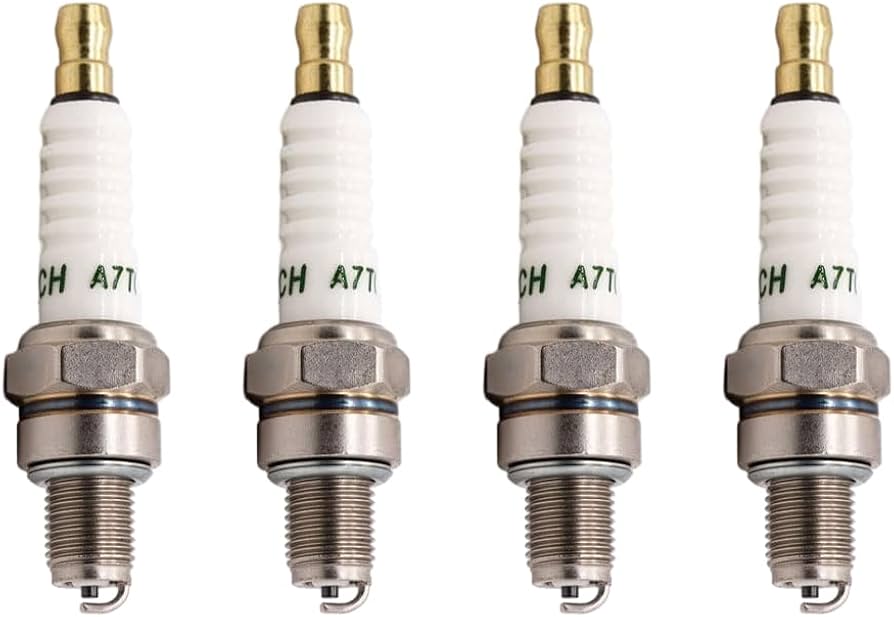NGK spark plugs, whether hotter or colder, are designed to optimize engine performance by regulating heat dissipation. Hotter spark plugs retain more heat, ideal for lighter driving conditions, while colder spark plugs dissipate heat faster, making them better suited for high-performance or heavily loaded engines.
Choosing the right spark plug for your engine is one of the most critical decisions in maintaining its overall performance. When it comes to NGK Spark Plugs, the heat range is an important factor that significantly affects how efficiently your engine operates. Whether you are trying to understand whether to choose a hotter or colder spark plug, this guide will help you make an informed decision based on your vehicle’s requirements.
The concepts of hotter and colder spark plugs, their role in your engine’s combustion process, and how to determine which one is appropriate for your driving style and engine modifications is vital. In this article, we will explore everything you need to know about NGK Spark Plugs and the effects of selecting the right heat range.
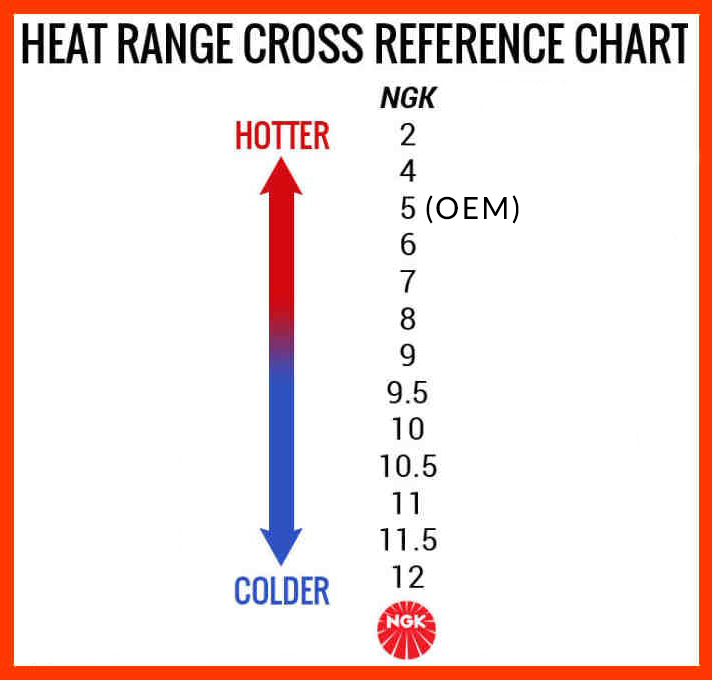
Contents
What Is Spark Plug Heat Range?
The heat range of a spark plug is an indicator of its ability to dissipate heat from the combustion chamber into the engine’s cooling system. Simply put, it determines how hot or cold the spark plug gets while operating.
The heat range is not simply about the spark plug being hot or cold. Instead, it reflects the spark plug’s ability to transfer heat from the combustion chamber to the surrounding engine components. A hotter spark plug will retain more heat, while a colder spark plug will dissipate heat more efficiently. Therefore, selecting the correct heat range is essential for maintaining optimal combustion, preventing problems like misfires or fouling, and ensuring long engine life.
NGK Spark Plugs: Hotter vs. Colder
NGK offers a wide range of spark plugs with different heat ranges. Understanding the differences between hotter and colder spark plugs can help you choose the right one for your vehicle.
What Is a Hotter Spark Plug?
A hotter spark plug is one that retains more heat at the firing tip, which can help burn off carbon deposits that may build up during operation. These plugs are best suited for engines that typically run under lighter loads or for vehicles that experience a lot of short trips where the engine temperature doesn’t rise significantly.
Benefits of Hotter Spark Plugs
Hotter spark plugs can provide several advantages, especially for vehicles driven under light load or for short trips. They help burn off carbon deposits and prevent fouling, which is important for maintaining smooth engine operation.
- Helps Burn Off Carbon Deposits: The retained heat helps to burn off any carbon deposits that might accumulate on the spark plug, reducing the risk of fouling.
- Ideal for Light Driving: Hotter plugs are more suited for vehicles that are driven primarily in city traffic, short distances, or under light load conditions, where temperatures tend to be lower.
- Preventing Fouling: Hotter plugs help keep the spark plug from fouling due to insufficient heat buildup during low-load conditions.
Drawbacks of Hotter Spark Plugs
While hotter spark plugs are effective in certain driving conditions, they can pose risks when used in high-performance or modified engines. Their ability to retain heat can lead to overheating and potential damage if not used appropriately.
- Risk of Overheating in High-Performance Engines: If used in high-performance engines, hotter spark plugs may cause the combustion chamber to overheat, potentially damaging engine components.
- Not Suitable for Heavy Loads: Hotter plugs may not be able to dissipate enough heat during high-performance or heavy-duty driving, which could cause the engine to run inefficiently.
What Is a Colder Spark Plug?
A colder spark plug is designed to dissipate heat quickly, making it the right choice for high-performance, turbocharged, or supercharged engines. These spark plugs are ideal for engines that operate under heavy loads or at higher speeds, where more heat is generated and needs to be efficiently managed.
Benefits of Colder Spark Plugs
Colder spark plugs are designed to dissipate heat more efficiently, making them ideal for high-performance engines and those that operate under heavy loads. These plugs help prevent overheating and ensure optimal performance in extreme driving conditions.
- Prevents Overheating: Colder plugs are ideal for high-performance vehicles, preventing overheating in turbocharged or supercharged engines that experience high operating temperatures.
- Best for Racing or Heavy-Duty Use: If you regularly drive at high speeds, tow heavy loads, or participate in racing, colder plugs are essential for preventing pre-ignition or detonation.
- Prevents Spark Plug Fouling: In high-performance or modified engines, a colder plug prevents the spark plug from getting too hot, thus avoiding potential damage to the engine.
Drawbacks of Colder Spark Plugs
While colder spark plugs are essential for high-performance engines, they may not be suitable for everyday vehicles. In standard engines, they can lead to poor fuel combustion and spark plug fouling due to insufficient heat buildup.
- Risk of Fouling in Standard Engines: If used in standard or low-performance engines, colder plugs can cause the engine to misfire and foul the plugs due to insufficient heat buildup to burn off carbon deposits.
- May Reduce Fuel Efficiency: Using colder plugs in a non-performance engine can lead to poor fuel combustion, negatively impacting fuel efficiency.
How to Choose the Right NGK Spark Plug Heat Range
Selecting the correct heat range for your NGK spark plug depends on various factors, including engine modifications, driving habits, and the overall performance you expect from your vehicle.
Factors to Consider When Choosing a Heat Range
Selecting the right heat range for the spark plug depends on several important factors. Knowledge about how a engine operates, the type of driving you do, and any modifications you’ve made can help determine whether you need a hotter or colder spark plug.
1. Engine Modifications
If your engine has been modified for increased power output, such as installing a turbocharger, supercharger, or high-performance parts, you will likely need a colder spark plug. Modified engines generate higher temperatures, which means a colder plug will be more effective at dissipating heat and preventing detonation or pre-ignition.
2. Driving Conditions
The type of driving you do also plays a critical role in selecting the right heat range. For example:
- City Driving: If your driving consists mainly of short trips with frequent stops, a hotter spark plug may be the right choice.
- High-Speed Driving: If you often drive at high speeds or take your vehicle on long highway trips, a colder spark plug would be more suitable to handle the heat generated under such conditions.
3. Fuel Type
Using high-octane fuel allows you to run higher compression ratios or more advanced ignition timing. In this case, you may require a colder spark plug to manage the higher combustion temperatures.
4. Compression Ratio
If your vehicle has a higher compression ratio (found in high-performance engines), it is crucial to select a colder spark plug to manage the higher cylinder pressures and temperatures. Higher compression engines are more prone to pre-ignition and detonation, which can be mitigated by using the right heat range plug.
5. Ignition Timing
If you are advancing your ignition timing to achieve higher performance, you will need a colder spark plug. Advanced timing increases the combustion temperature, necessitating a plug that can effectively handle the added heat.
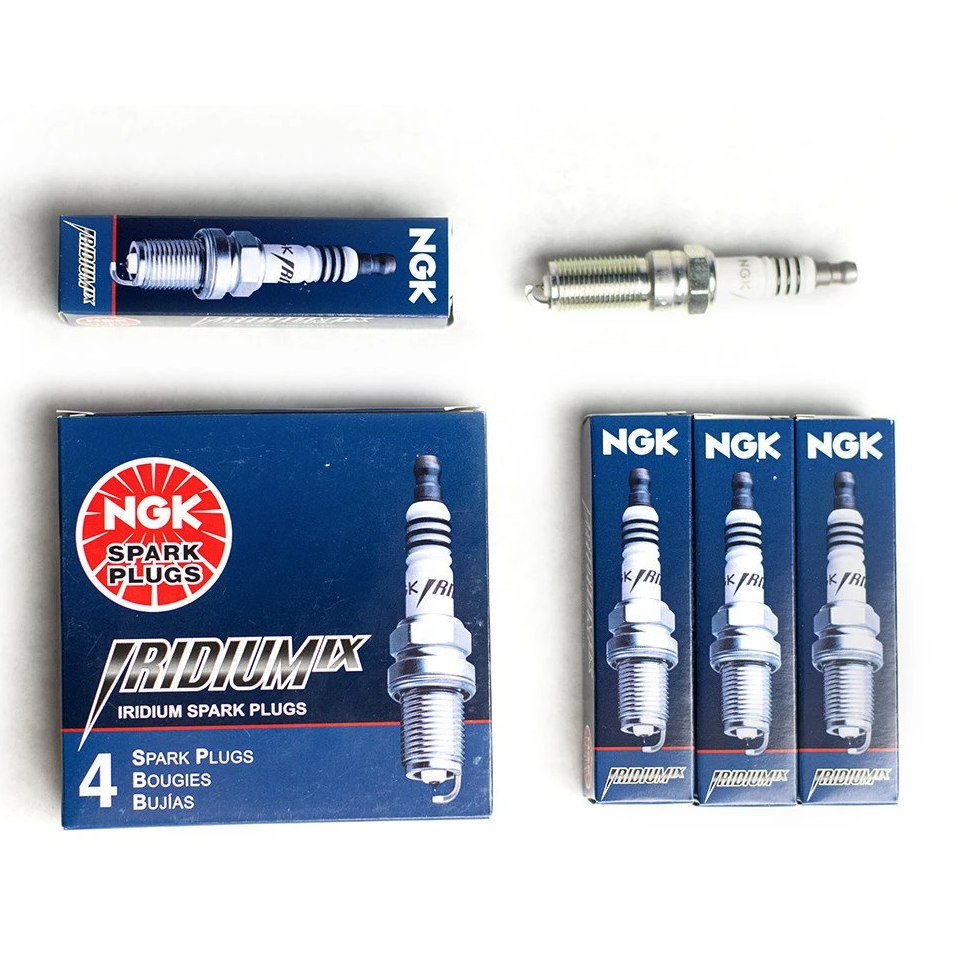
NGK Spark Plug Heat Range Chart
To help you determine which spark plug heat range is suitable for your vehicle, NGK provides a comprehensive heat range chart. NGK’s spark plugs are classified by their heat range number, where a lower number represents a hotter spark plug, and a higher number represents a colder spark plug.
| Heat Range | Application |
|---|---|
| 2–4 | Small engines (lawnmowers, generators) |
| 5–7 | Standard passenger vehicles |
| 8–9 | Performance vehicles, light racing |
| 10+ | Extreme performance, heavy-duty engines |
For instance, a spark plug like the NGK BKR6E (heat range 6) is commonly used in passenger vehicles, while the NGK BKR8E (heat range 8) is suitable for high-performance vehicles and racing applications.
Benefits of Choosing the Correct Heat Range
Using the correct spark plug heat range has several advantages for your engine:
- Improved Combustion: Ensures the air-fuel mixture is ignited optimally, leading to better engine performance.
- Prevents Overheating: A colder spark plug helps prevent detonation and keeps the engine at the correct temperature.
- Enhances Fuel Efficiency: Properly selected spark plugs contribute to better fuel combustion, which improves fuel economy.
- Extends Engine Life: Reduces wear and tear on engine components, helping your engine run smoothly for longer.
- Prevents Fouling: The right spark plug keeps the firing end of the plug free from carbon buildup and other contaminants.
Frequently Asked Questions
Here are some FAQs about hotter and colder spark plug –
1. How do I know if I need a hotter or colder spark plug?
- The choice depends on your engine type, modifications, and driving conditions. Hotter plugs are for light-driving conditions, while colder plugs are necessary for performance or heavily-loaded engines.
2. Can I use a colder spark plug in a standard vehicle?
- While you can use a colder plug in a standard vehicle, it may cause the spark plug to foul more quickly, leading to misfires and poor engine performance.
3. How often should I change my spark plugs?
- Spark plugs should be replaced every 30,000 to 100,000 miles, depending on the type of engine and the manufacturer’s recommendations.
4. Can using a hotter spark plug improve my fuel efficiency?
- Yes, using a hotter spark plug in a vehicle that undergoes light driving or short trips can improve fuel combustion and increase fuel efficiency.
5. How can I tell if my spark plug is too hot or too cold?
- Signs of a too-hot plug include engine knocking or melted electrodes, while too-cold plugs result in fouling, poor acceleration, or engine misfires.
Conclusion
Choosing the right NGK spark plug heat range is essential for maintaining your engine’s performance, efficiency, and longevity. Whether you need a hotter spark plug for city driving or a colder one for a high-performance engine, understanding the relationship between heat range and combustion conditions will ensure your vehicle operates at its best.

